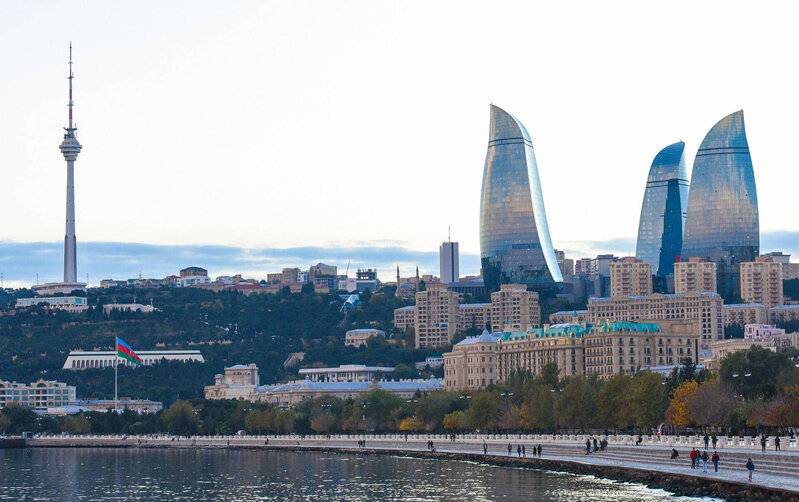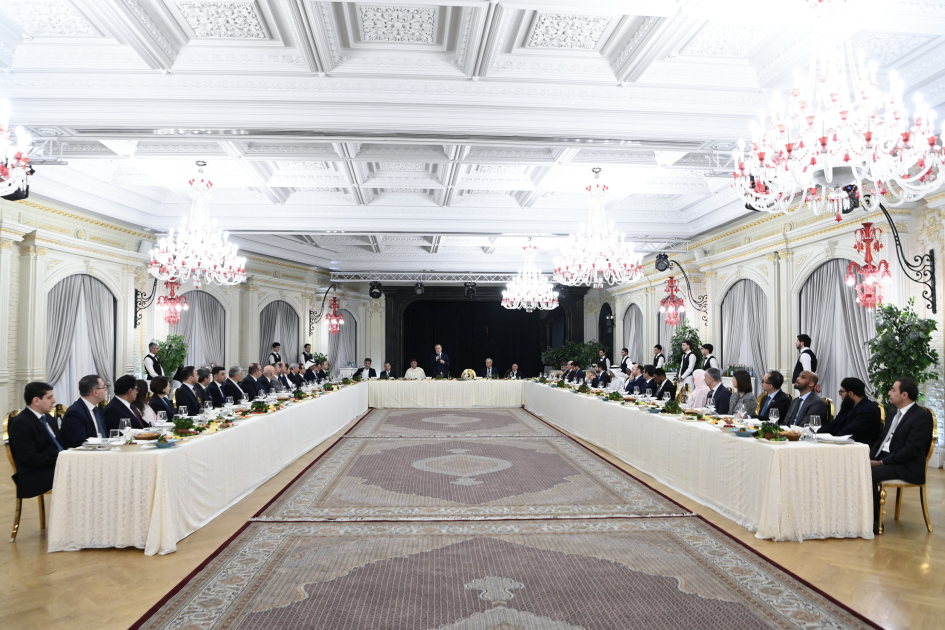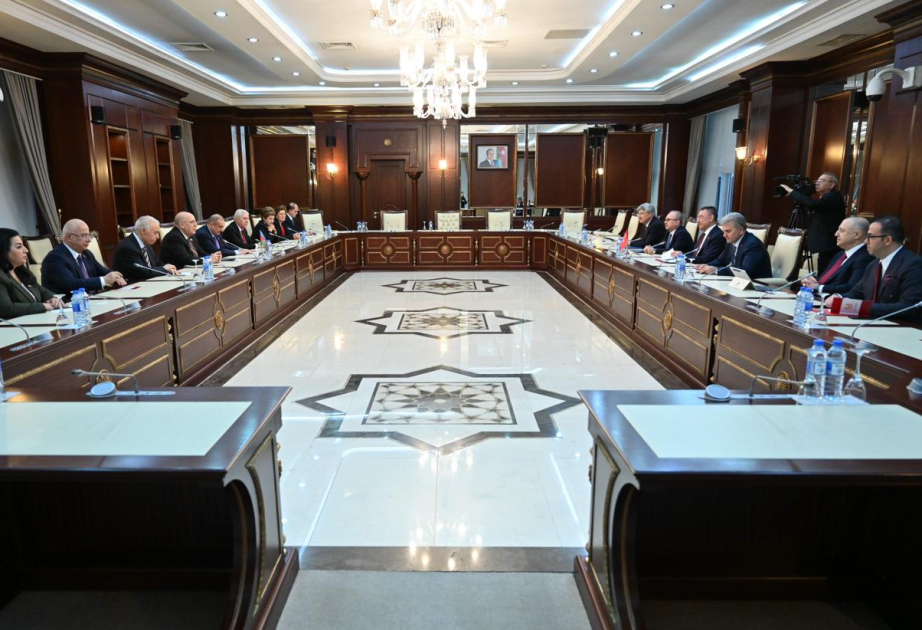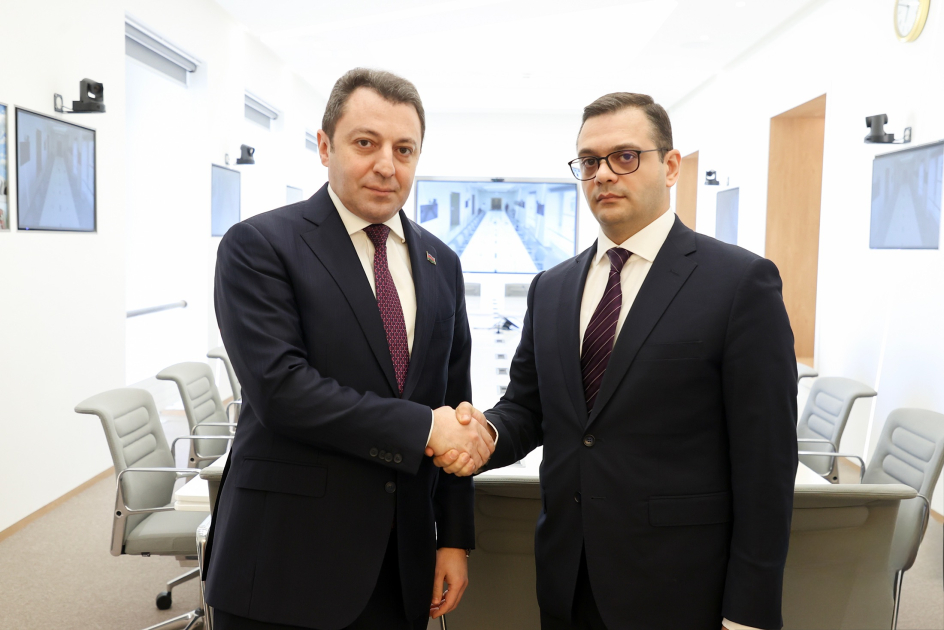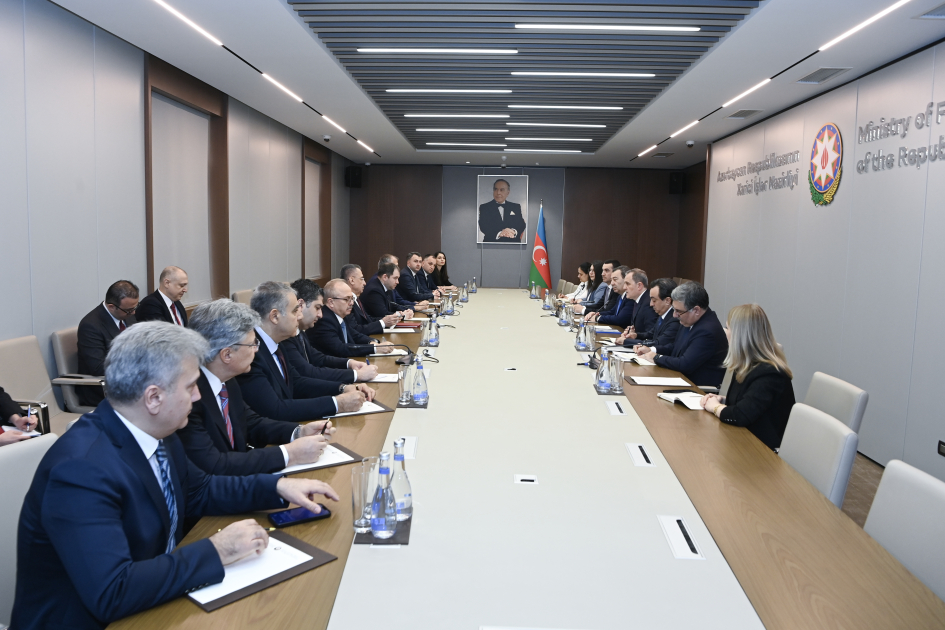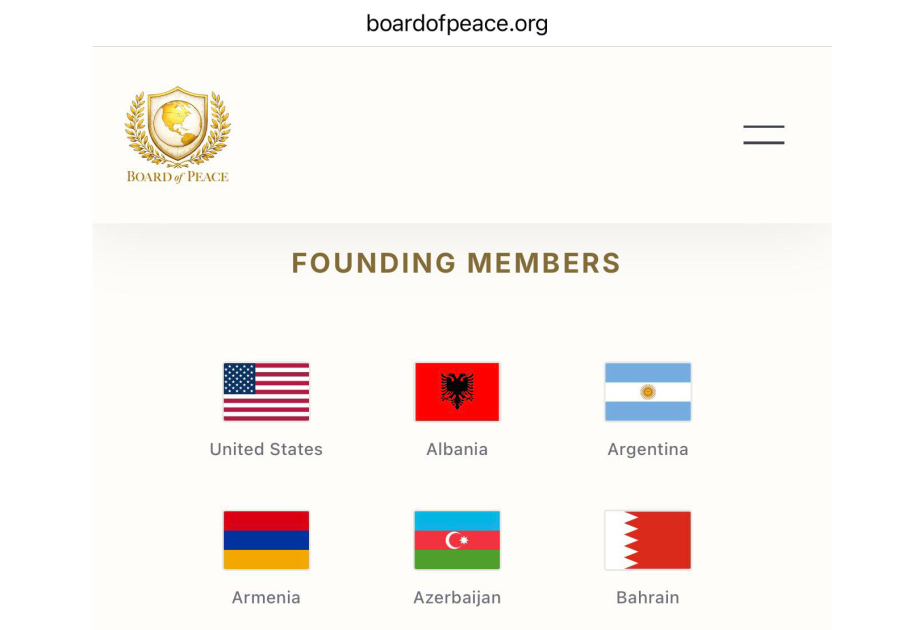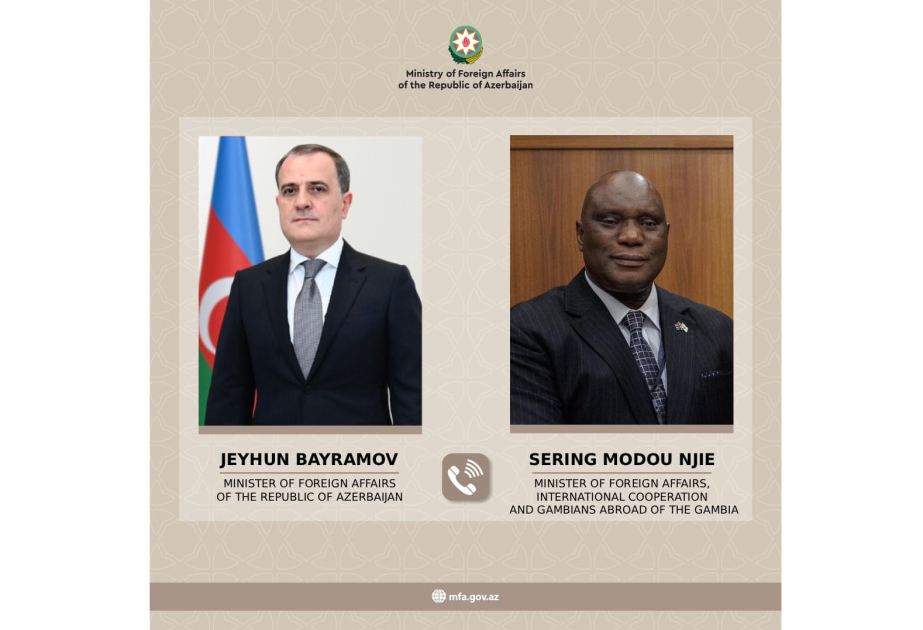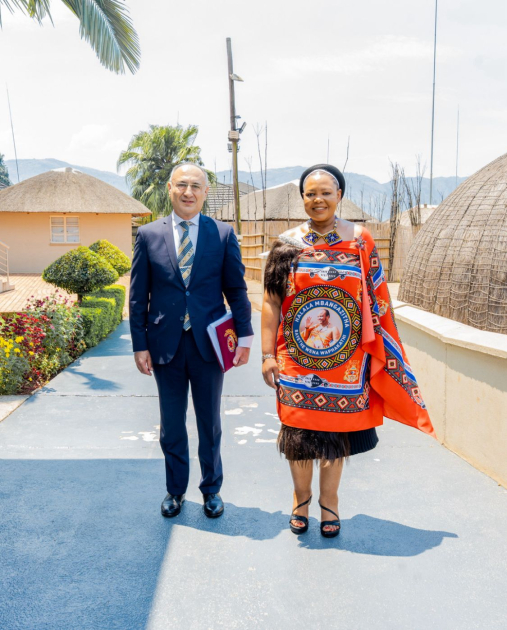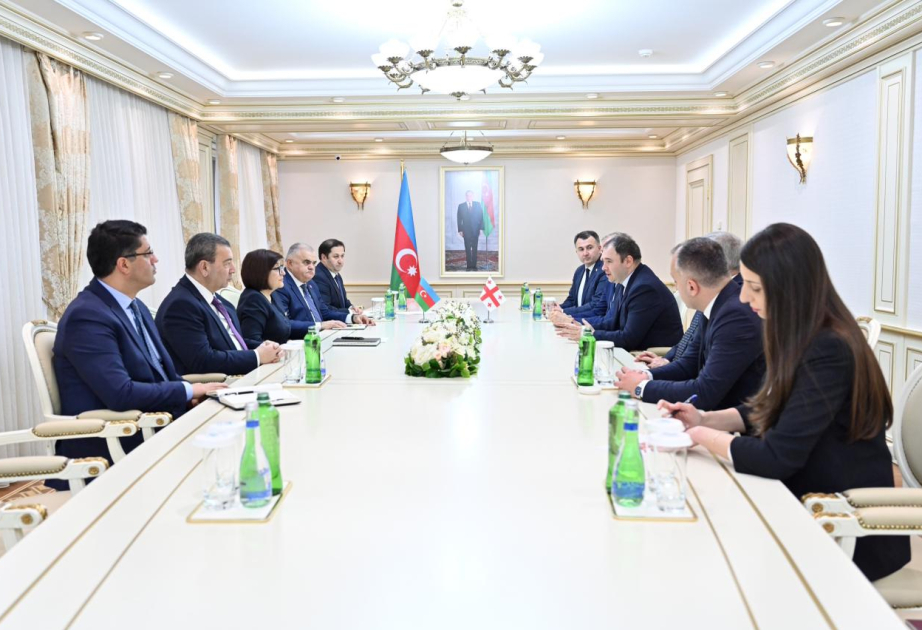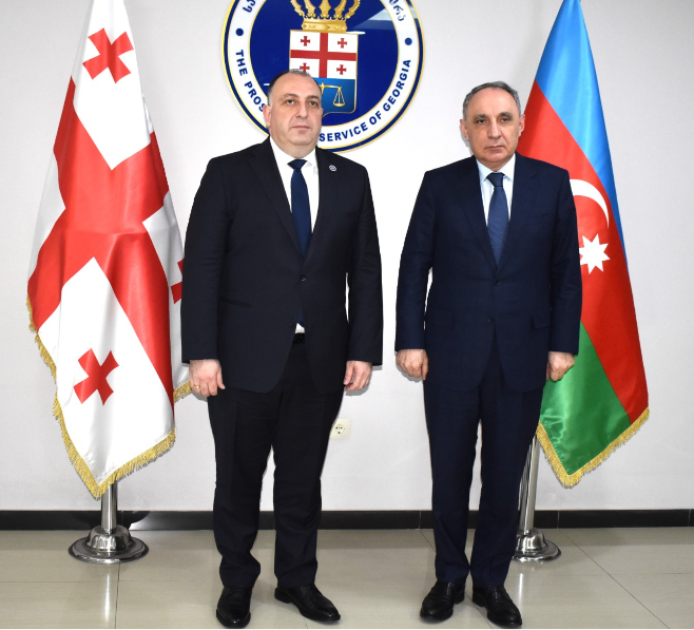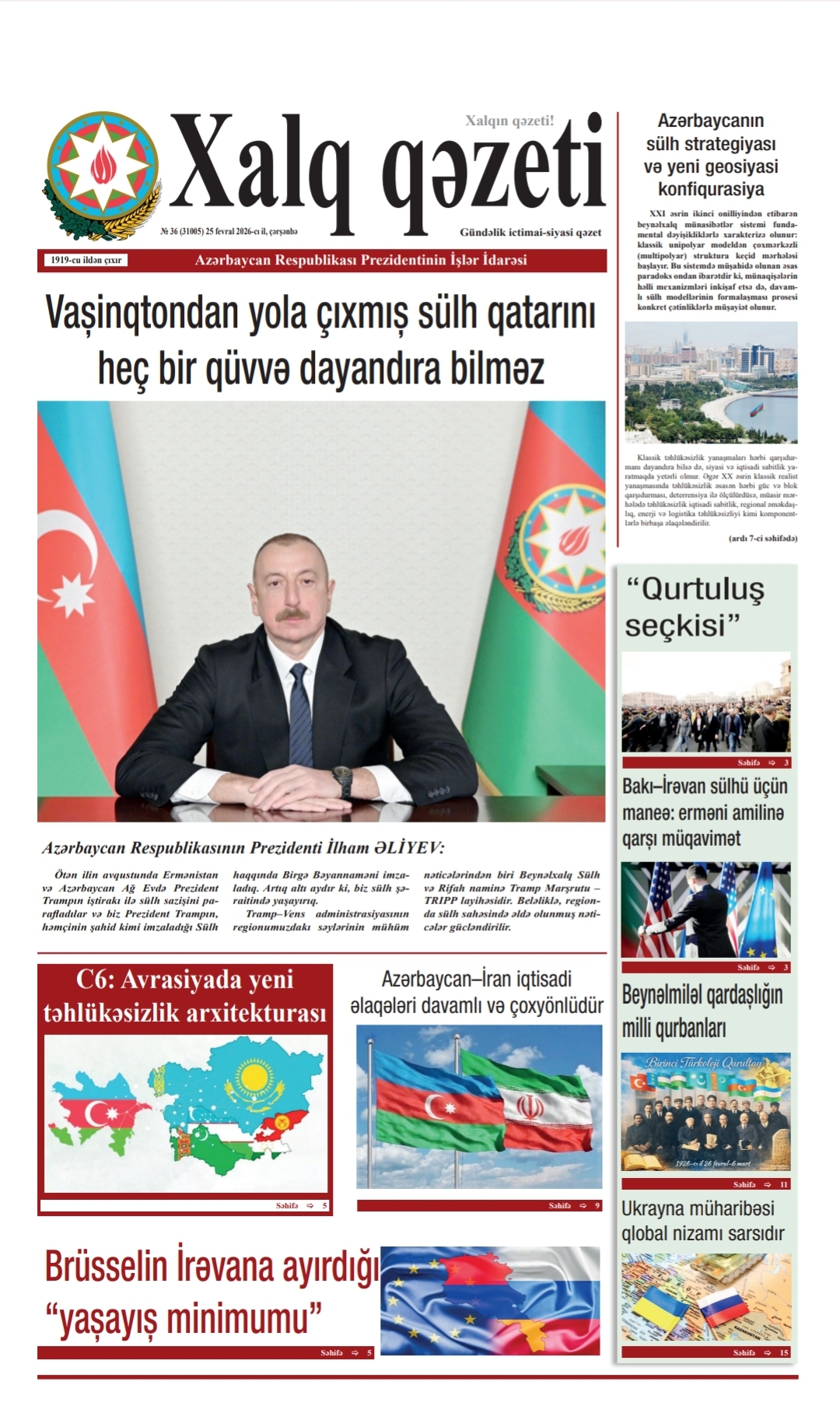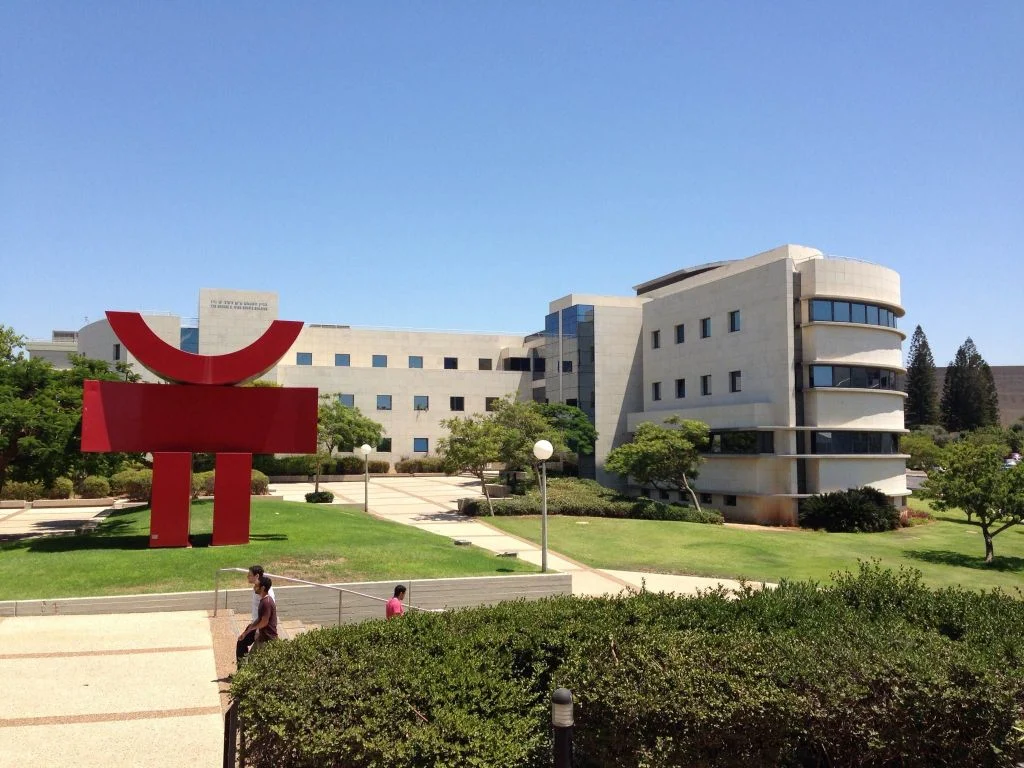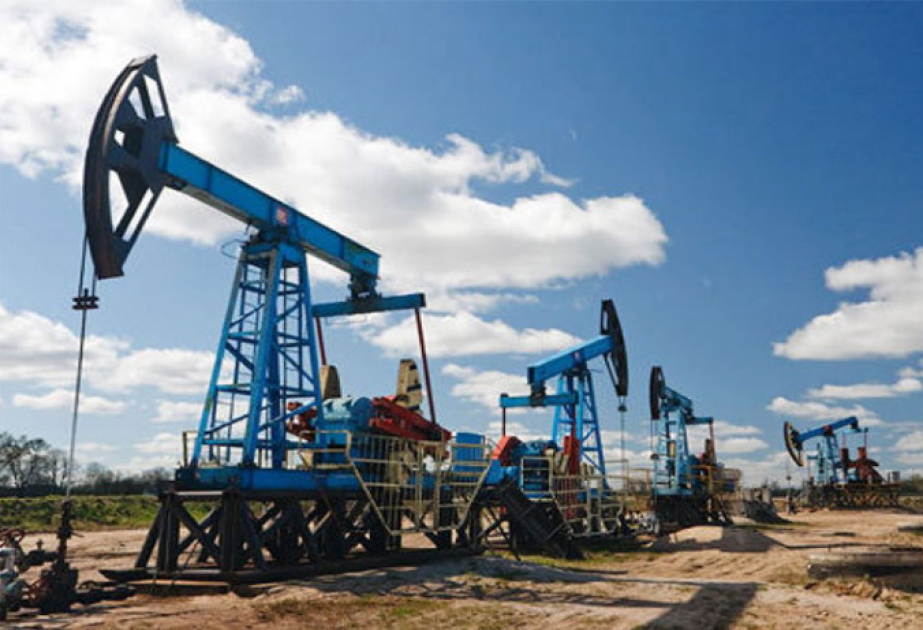(in the example of Azerbaijan)
ARTICLE II
As much as it is difficult to achieve independence, it is even more difficult to maintain it, to make it permanent and eternal.
Heydar Aliyev,
National Leader
The South Caucasus is a geopolitical battlefield
In the first article, let's try to explain our thesis that the legal immunity of an independent state is ensured only by building a strong state, against the background of regional geopolitics. The fact is that even in the first decades of the XXI century, the political-theoretical analysis of this problem was not completed. Of course, everyone understands that if a state is independent, there are quite clear articles in international law about not touching it. It is no secret that international organizations are responsible for the inviolability of every sovereign state. However, when the matter comes to reality, such issues of nonsense nature appear that even in theory it becomes difficult to determine where truth, objectivity and justice lie. Let us clarify the last point, which is highlighted in several examples related to the South Caucasus.
The point is that in practical geopolitics and politics, the power struggle of great powers has always been and continues to be. Competition in the South Caucasus has become sharper and more ruthless. The struggle for supremacy in this area between the West, Russia, Iran and Turkey has had a special meaning in all periods of history. At the end of the 20th century and the beginning of the 21st century, this issue took on a more acute, risky, uncertain and more frightening content against the background of the increased possibility of military clashes.
The analysis of philosophical, political-theoretical and legal studies shows that the situation in the struggle between the great powers, which has been emphasized so far, has not been formed in the spirit of new challenges - each power is striving for absolute advantage. This point can be seen in the background of the geopolitical struggle, which manifests itself in two directions. "Geopolitical earthquake line" in the region The first direction is the West-Russia conflict. It seems that each of the two sides will not accept the dominance of the other under any circumstances. Who will be the losers in this kind of one-sided and deepening geopolitical conflict? First of all, of course, the legal immunity of the South Caucasus states will be damaged. Because the great powers use them to justify the "objectivity" of their policies, "meeting regional interests" and even "bringing development, democracy, and peace to the region." At present, this game has become more acute in the USA-Russia and France-Russia directions. At the intersection of these two lines, Armenia loses its legal immunity. The reason is that Armenia has not been able to determine the course of building an independent strong state in accordance with the requirements of the time for more than 30 years, and it is actually the weakest state in the post-Soviet space. There is no economy, no democracy, no regional constructive politics here. This kind of weak statehood leads Armenia, as well as other states in the region, to uncertainty and risks. Armenia is now practically on the "geopolitical earthquake line" of regional fragmentation.
The second direction is that Iran does not give up the struggle against the Turkish-Azerbaijani geopolitical power in the South Caucasus in a half-covert, half-open manner. This is confirmed by Tehran's position in security, participation in international projects, transport-logistics service, and mutually beneficial regional cooperation platforms.
Terrorism was committed against the Azerbaijani embassy in Iran. The rights of Azerbaijanis living in that country continue to be violated. When Turkey's gas hub project reached the stage of concrete realization, Iran's President Reisei declared that Iran can safely create the largest gas hub in the world. Apart from these, Iranian officials and politicians from time to time put forward biased opinions about Azerbaijan, and at the same time, they jealously welcome the speaking of the rights of millions of Azerbaijani Turks living in South Azerbaijan.
Of course, the fact that the three Muslim states in the South Caucasus have such a relationship does not benefit any of them. But the worst part of the matter is that official Tehran does not want to accept why such a situation poses risks to the legal integrity of the state and the full guarantee of its sovereignty. Still insisting that "I must be the one who says!" logically, it harms, but in terms of its own safety, it counts.
Here we are faced with a contrasting and thought-provoking situation from a geopolitical point of view. And it seems as if there is a contradiction with F. Fukuyama's meaning of "strong state". At the same time, the issue is not limited only to the contradictions of the geopolitical and political-theoretical meaning of F.Fukuyama's concept of "strong state" that manifest themselves in the practical functional level. The activities of the USA, European countries, Russia and Iran in the South Caucasus show that uncertainty and lawlessness on the international scale are not caused only by the weakness of the states. It also increasingly creates the behavior of powerful states. Because they rely on their own power, violate the rights of an independent state, and interfere in their internal affairs.
It turns out that at some geopolitical moment, strong and weak states have a similar identity in the geopolitical context. This identity, unfortunately, is not positive - both can work against regional lawlessness, independence, sovereignty and inviolability. In that case, the opinions of F. Fukuyama and other philosophers, sociologists and political scientists (for example, Chester Crocker) such as "weak" states or "false" states have become an important problem of the international order" seem to understate the real situation. In particular, in the South Caucasus, this problem leads to very serious obstacles in the context of independent statehood, sovereignty and legal immunity. Let's explain our opinion with facts.
"Enforcer": geopolitical "ram"?
"Enforcer" is a term with many different meanings. In geopolitical theories, this concept means a state or a group of states that creates order on a world scale and actually regulates interstate relations on a global scale. In this sense, "enforcer" has a positive meaning. But researchers often write about the lack of a power that can act as a real regulatory enforcer around the world since the end of the 20th century and the beginning of the 21st century. They believe that this is due to the weakening of the leadership position of the United States. At the same time, those powerful states are more inclined not to play a positive regulatory role. They now more closely correspond to the meaning of "enforcer" in American slang, "street fighter", "gangster". In other words, they are trying to regulate the geopolitical order in the world, ensuring the independence and sovereignty of the states by the "escape" method. As a result, the global geopolitical environment as a whole is criminalized, figuratively speaking, the world is "ruled by sheep".
It is at this point that differences in the geopolitical context between strong and weak states disappear - both promote chaos, lawlessness and pose a real threat to independence. When the United States uses its power and defends Armenia's illegal behavior, when Russia implicitly supports Yerevan, when France openly defends the aggressor and sells weapons to it, and when Iran says "Armenia's border is my red line", they equally try to use their power as a "ram". The risky and disastrous trajectory of all these "intersects" in the zone of serious threats to the "possible borders" of the sovereignty, legal immunity and independence of the three South Caucasian states, they motivate each other.
Of course, these are paradoxes, contrary to common sense. But it is reality. Therefore, the question of how strong the local states in the South Caucasus are really wanted by the big powers is clear. In our opinion, they not only don't want it, they even try to prevent it with various excuses.
Against the background of all this, the Republic of Azerbaijan becoming a strong state in the true sense, achieving legal immunity and fully ensuring its sovereignty is seen as historical heroism, political skill and geopolitical bravery. How did Baku achieve this?
A strong state of the South Caucasus - Azerbaijan managed to become a strong state in the conditions of geopolitical contradictions between a weak state and a strong state in the South Caucasus. Azerbaijan's weakness is the desire of its geopolitical rivals. For this, they created many artificial obstacles within their means. Against this, the great leader Heydar Aliyev set the model of becoming a strong state in the South Caucasus. In other words, Heydar Aliyev created the "Concept of Strong Azerbaijan" at the theoretical level, acting not with emotions, but with strategic political intelligence and diplomatic skills. At the same time, he began to implement this concept in an exclusive form of practical activity.
Creating a strong independent state of Azerbaijan was a very difficult task at the current historical stage. Because the history of Azerbaijani statehood in the 20th century shows that a number of stronger states near and far are preparing various provocations against any attempt of Baku to become independent and strong. These provocations not only divide the country and society, but also contain plans to plunge the state into a vortex of external destructive influences. In doing so, they raise three levels of problems in front of creating a strong Azerbaijan.
The first level is to fragment the society from the inside according to various socio-psychological factors and, if possible, to break it into a form that can last for a long time. For this, they prefer informational and ideological influences. The leading place in information effects is the presentation of Azerbaijan as a place with features that do not meet modern requirements as a country, state, and society. At the same time, they try to artificially use both cultural and religious factors. In general, the point that unites both methods is that they try to present Azerbaijani society as a society without a modern culture, unable to train real political leaders and high-level intellectuals, with a weak potential for self-development and unable to define its own history.
The great leader fought against all these artificial obstacles, dangerous information and provocative political-ideological activities in a very effective and fruitful way. Circles that do not want to be friends of Azerbaijan in the short term have a strong leader, management institutions that serve political independence, the ideology of Azerbaijanism that unites society, strategic programs that will ensure comprehensive and long-term development of the country (for example, oil strategy, socio-economic development strategy, the creation of infrastructure that will stimulate the formation of a strong economy). , they saw the concept of multiculturalism, which will gather society from the inside in terms of culture and lead it to the path of irreversible integration, etc.). Among them, the concept of a strong army had a special place.
Basic terms of the "Strong Azerbaijan" concept
With this, Heydar Aliyev and Ilham Aliyev, the political successor of the brilliant leader, actually defined the main components of the "Strong Azerbaijan concept" and were able to direct strong state building to the path of continuous progress. From the above analysis, it can be seen that the main pillars of this concept are as follows:
– Having a new strong leader;
- to form an independent policy-making state with guaranteed territorial integrity and full sovereignty;
- develop excellent and effective management mechanisms that serve to build an independent state by increasing the efficiency of public administration;
- to ensure that a strong economic system is the basis of strong state building;
- to ensure that the new energy strategy has a form, structure and function that directly serves national interests and national security;
- to create a strong and united society that will ensure the formation of a free civil society;
- to ensure the complementarity of a strong society and a strong state based on multicultural values;
- to achieve the security of the country by creating a strong army and a strong defense industry.
Each of these directions separately and in mutual connection as a system serves to create a strong state in Azerbaijan. Thanks to their final influence, Azerbaijan managed to ensure its independence and legal immunity against the background of continuous development. It is necessary to dwell on this aspect of the matter.
(to be continued)
Fuzuli GURBANOV,
XQ analyst, doctor of philosophy


